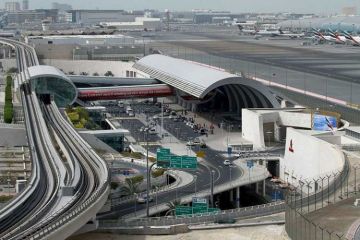University leaders in St Petersburg are working with a British university to improve the city's academic communications by using spare capacity on old Soviet military satellites.
The Pounds 72,000 plan would enable the northern Russian city's 44 state universities to develop distance learning and give them greater access to the Internet. It is the result of a link set up three years ago between De Montfort University's Leicester campus and St Petersburg State University of Technology and Design (SPUTD).
The universities, which share common backgrounds in textile chemistry, fashion and design and other areas, established the communications project through the initiative of Brian Foxon, De Montfort's international research coordinator who is also a colonel in the Territorial Army, with 30 years' experience in military communications.
University leaders in St Petersburg see the project as essential to developing the city as a centre of research and academic excellence in the 21st century. The scheme is backed by the influential Council of Rectors, chaired by Victor Romanov, rector of SPUTD. The council, which represents heads of the state institutions and the city's 26 independent universities, sees its role as promoting higher education in St Petersburg as a whole, believing that the city's intellectual heritage and advantageous geographical position, close to Finland and the Baltic republics, give it the potential to become one of Europe's leading university cities.
It is an approach which enjoys the backing of the city authorities. The recently-elected St Petersburg governor, Vladimir Yakovlev, shares his predecessor Anatoly Sobchak's understanding of the importance of higher education to the city. "The new governor undoubtedly realises that one of the things that St Petersburg has going for it is its human potential. The city has one of the highest concentrations of graduates, scientists and academics in the world," a British diplomat said. Professor Romanov sees improved international and inter-university communications as an essential first step to realising this vision, at a time when state-funded universities in Russia are still desperately under-funded and suffering from years of neglect. Professor Romanov, who lived through the horrors of the 900-day wartime siege of Leningrad as a boy, is a strong advocate of promoting the city as a whole and sees university cooperation as key to this.
"The research and intellectual capacity of St Petersburg, its academic heritage, is not only the city's, or Russia's, but is part of European history. We see ourselves as belonging to the world and international system of education.
"Upgrading the level of research and university education requires that each institution is not a closed body, but develops through collaboration with other universities. We need to grow together and use the capacity of each other to the benefit of the whole university society and city. Our principal is integration, not of specific institutes, but of the system as a whole."
SPUTD has set up an institute of information technology specifically to drive forward the satellite communications project. Its director Mikhail Voronov said that without 21st century-quality IT, the city's universities would be consigned to the level of purely local institutions. Professor Voronov said that the new communications network would be run from a computer centre at either SPUTD or its neighbour, the Telecommunications University. But he regards building the network as relatively easy. The key to success is to generate the money for the project and secure the essential backing of officials in the Moscow ministries.
"Even if we decide that the military satellite channels are available, we shall still need to pay for installing the centre itself," he said. "The main problem is money and co-financing. The position in our government is that when there is a definite source of finance from, say, the British side, then there is a much better chance of solving the financial issue from the Russian side." When the finances are resolved the system could be operational within months, bringing international distance learning and other computer-based resources to the city's 250,000 students and university staff.
At the British end, part-time soldier Brian Foxon found support for the project through a contact at the Defence Research Agency, Colonel Roy Giles, who is director of the Partnership in Technology programme in Russia. "The DRA is now supporting a number of initiatives including this plan to use Russian satellites for educational purposes," Mr Foxon said.
The task ahead is delicate but vital, according to Professor Romanov. "Assisting the transition of Russian higher education from the Communist system to the market economy is a very sensitive matter. Universities tend to inertia, which has some advantages in chaotic times. We must be careful to manage our transformation effectively, keeping in mind our goals to improve the quality of education, resource management and curricular design."
Register to continue
Why register?
- Registration is free and only takes a moment
- Once registered, you can read 3 articles a month
- Sign up for our newsletter
Subscribe
Or subscribe for unlimited access to:
- Unlimited access to news, views, insights & reviews
- Digital editions
- Digital access to THE’s university and college rankings analysis
Already registered or a current subscriber?








